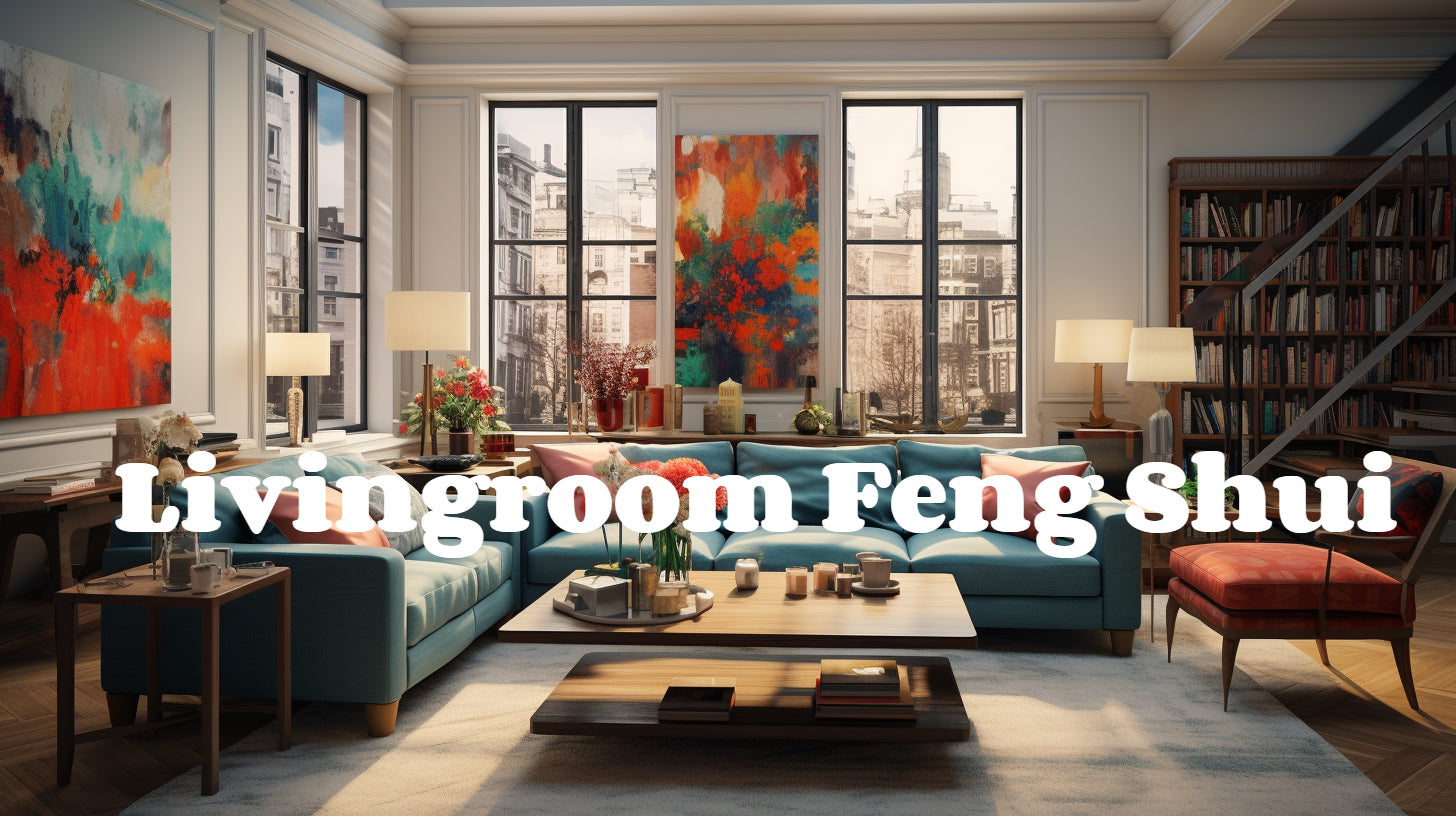In this Article:
In ancient times, people studied Feng Shui for two main reasons: to benefit agricultural development and to promote harmony between living environments and individuals.
This isn't superstition; in fact, Feng Shui is a blend of psychology and environmental science. By appropriately improving the environment to align with Feng Shui principles, individuals can maintain positive states in various aspects of life.
The living room is the first domestic space behind the foyer, serving as a venue for family gatherings and social visits. The Feng Shui of the living room relates to wealth, health, family harmony, and happiness. Today, let's explore some Feng Shui knowledge about the living room.
Section 1: Entrance
Many homes have various shortcomings, so when renovating, it's essential to pay special attention to improving them, especially the first visible location upon entering, aiming for "three visible, four invisible."
Three Visible:
- First Visible: Upon entering, see red. Red is a traditional auspicious color in China, symbolizing joy and warmth. It's associated with good fortune and happiness, making "seeing red upon entering" an auspicious sign.
- Second Visible: Upon entering, see green. Seeing green plants immediately upon entering gives a sense of relaxation and freshness. Green symbolizes vitality and growth, purifies the air, and is soothing to the eyes.
- Third Visible: Upon entering, see calligraphy or paintings. Seeing elegant calligraphy or paintings upon entering a home gives the impression of cultured and tasteful homeowners. Artworks reflect the cultural refinement and taste of the residents and help create a relaxed atmosphere upon entering.
At the same time, coming home to such serene and beautiful surroundings every day can alleviate mental fatigue.
Four Invisible:
- First Invisible: Upon entering, avoid seeing sharp objects directly facing the door. If sharp objects or blades face the door, it creates an unwelcoming atmosphere and can affect the health of family members, potentially leading to head-related ailments.
- Second Invisible: Upon entering, avoid seeing the bathroom directly facing the door. Bathrooms are places of impurity, and having the door facing the bathroom is considered inauspicious. A partition should be used to block the view to prevent impurities from contaminating the living room and fresh air entering from outside.
- Third Invisible: Upon entering, avoid seeing a mirror directly facing the door. Mirrors are considered Yin objects and can attract negative energy, leading to disturbances. Moreover, mirrors reflect the accumulated positive energy within the home, especially dressing mirrors for women. They should not directly face the door, as it's unfavorable for the overall fortune of the household.
- Fourth Invisible: Upon entering, avoid seeing a pile of miscellaneous items directly. Seeing clutter upon entering gives the impression of the homeowner's lack of refinement. Such a layout is unfavorable for wealth accumulation and gives the impression of disorderliness and lack of organization.
Section 2: Layout
The ideal layout for a living room is a square or rectangular shape. Seating areas should not be placed directly facing corners, and sofas should not press against beams.
If there are prominent corners, bonsai or furniture can be placed to mitigate their effects.
For L-shaped living rooms, furniture can be used to divide them into two square areas, treated as independent sections. For example, one area can serve as a reception room, and the other as a living room. Alternatively, a mirror can be hung on the wall to symbolically fill the corner, creating a complete room and determining the central point.
Section 3: Orientation
According to Feng Shui principles, if one must pass through a bedroom or kitchen before reaching the living room, it can lead to unclear boundaries between the inside and outside of the residence, resulting in a lack of privacy and potential disruptions in work or business.
The living room is ideally located in the front half of the residence, near the entrance, to directly absorb the energy entering from the door.
If a corridor must be traversed to reach the living room, it should be kept clean and well-lit to facilitate the flow of energy into the living room.
The living room should not be situated along a thoroughfare. It's a place to gather positive energy and should be stable. Placing the living room within a traffic flow area can disrupt family gatherings or visitor receptions.
In duplex residences, the living room should be located on the lower level.
Section 4: Flooring & Foyer
Living room floors should be flat and free of excessive stairs or height variations.
A foyer or a low cabinet should be installed between the entrance and the living room. This acts as a buffer between the interior and exterior, allowing the positive energy to circulate into the living room while concealing the interior of the residence from outside view, symbolizing continuous prosperity.
Section 5: Furniture Placement
According to Feng Shui principles, furniture placement is crucial in the living room:
- Storage cabinets should snugly fit against the walls.
- Opt for sturdy furniture with solid shapes, such as high-backed sofas and chairs, symbolizing stability and family support.
- Ideally, arrange living room furniture in an octagonal shape to encourage harmonious relationships among occupants and create a space conducive to rest and relaxation. Avoid positioning furniture in areas with negative energy.
Sofa:
- The sofa should face the entrance or the television, never with its back to the door. Having a sofa facing away from the door can disrupt interpersonal relationships and lead to conflicts or gossip.
- If the sofa aligns in a straight line with the entrance, it creates a Feng Shui condition known as "direct confrontation," which is unfavorable.
- Avoid placing large mirrors behind the sofa. Reflecting the back of someone's head in a mirror can be unsettling, especially if the mirror is directly facing the entrance.
Shoe Cabinet:
- Ensure the shoe cabinet's height is appropriate, ideally not exceeding the height of an adult's hip. Shoes can carry dust and negative energy, so a lower cabinet height prevents obstructing the view and maintains positive energy flow.
- Consider multifunctional shoe cabinets with a designated shoe storage area at the bottom.
Section 6: Lighting
Insufficient lighting in the living room can lead to restlessness and hinder relaxation.
Ample natural light and good airflow are essential for the living room. Positive energy should be maintained throughout, so avoid placing too many dense potted plants on the balcony, as they may obstruct light. Bright living rooms bring prosperity, so opt for light-colored walls.
Section 7: Beams & Pillars
Beams pressing on the head are scientifically proven to disrupt sleep and can lead to headaches, dizziness, and restlessness. If positioned directly above the bed, they can worsen these effects.
Ceiling beams in the living room can create a sense of oppression. Sitting under them can cause psychological tension and hinder fortune.
Beams and pillars are crucial for supporting the weight of the house. If they are prominently located, they should be concealed during renovation.
Section 8: Soft Furnishings
The living room is where family and friends gather, requiring a lively and harmonious atmosphere.
Circular shapes are associated with dynamic energy, so circular lamps, ceiling designs, and decorations can create a warm and lively ambiance.
Decorating the living room with plants, landscapes, or auspicious animals like fish, birds, or horses is generally auspicious. However, when
Summary:
Understanding the principles of Feng Shui offers valuable insights into creating harmonious living spaces that promote well-being and prosperity. From optimizing entryways with auspicious colors to arranging furniture to encourage positive energy flow, every aspect of the living room's design plays a crucial role. Key considerations include layout, location, flooring, furniture placement, lighting, and décor choices. By incorporating these Feng Shui principles, individuals can cultivate a balanced and harmonious environment that fosters positive energy, relationships, and overall happiness in their homes.















Leave a comment